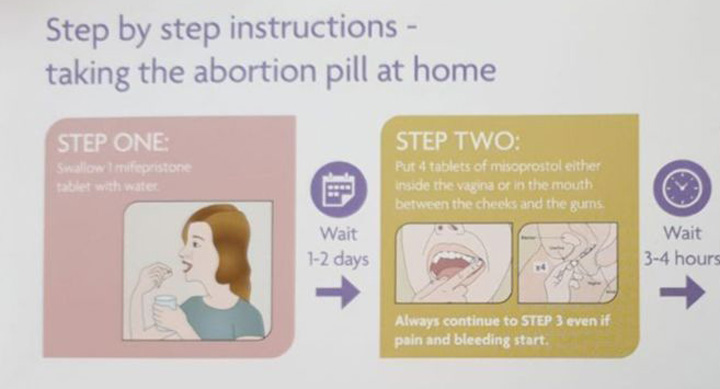Independent health consultant Kevin Duffy writes on the abortion lobby’s latest proposals to decriminalise abortion
On 28 November 2023, Dame Diana Johnson and Stella Creasy MP both submitted proposed amendments to the Criminal Justice Bill.[i] Whilst they have taken two different approaches, both want changes made to ensure that no woman faces prosecution or jail time for ending her pregnancy, at any gestation. These amendments had been widely advertised by them and their supporters, which include BPAS, MSI Reproductive Choices and the Royal College of Obstetricians and Gynaecologists.
Amendments will not change existing laws and regulations
In response to objections raised when they and their supporters had previously trailed this in the press and social media, they both stated that their amendment would not change any of the existing laws related to the provision of abortion services in healthcare settings across England and Wales, explicitly confirming that there would be no change to the gestational time limits for an abortion, as prescribed in the Abortion Act 1967.
In a related press release, Dame Diana Johnson states that her amendment would not change the laws that govern how doctors, nurses and midwives provide abortion services, and that any medical professional who assisted a woman in obtaining an abortion outside the law would be liable for prosecution.

Amendments only affect self-administration after 10 weeks
The protections that these amendments would bring will only apply to women who self-induce their abortion at home, or in any other place, after their pregnancy has reached the start of the tenth week. In tabling their amendments, both MPs mentioned recent legal cases including Carla Foster, who was convicted for a late abortion when she was 8 months pregnant, and six others who are awaiting trial. They spoke in emotive tones about the tragedy of these cases and implored their fellow MPs to join with them in removing the Victorian laws that are used to punish these women.
What they and their supporters have failed to address is how a woman might be able to self-induce her abortion after ten weeks. We are long past the days when a woman would need to seek out an illegal provider in the backstreets or resort to the agony of using a wire clothes hanger or knitting needle. Now, all they need to do is phone BPAS or Marie Stopes and ask for the abortion pills to be posted to a convenient address.
Some might do this intending to proceed within the legal time limit but for various reasons do so sometime after the start of their tenth week; there have been CQC and DHSC reports of such cases.[ii] [iii] A few will set out to deliberately mislead the abortion provider and lie about their gestational age; we know that this is what Foster did when obtaining pills-by-post from BPAS.
Medical guidelines recommend that the abortion pills should not be self-administered by a woman outside a healthcare setting after her pregnancy enters the second trimester.[iv] Whilst the pills can used to induce an abortion at any gestation, it is accepted that these later abortions need to be clinically observed and any complications arising from a failed or incomplete abortion must be managed before the woman is discharged.
The rate of these complications increases significantly with each passing week of gestation. A recent report from the Office for Health Improvement & Disparities (OHID) shows that complication rates in the second trimester can be six times higher than before twelve weeks, rising to ten times higher in the third trimester. Untreated complications can prolong bleeding and carry the risk of infection.
Self-managing your medical abortion after week 10 is not like having a heavy period. This is not a simple, effortless, process; it can be traumatic, especially when passing and seeing the developing baby.
There are physical and mental health risks for the woman; this is a procedure that is best managed in a clinical setting. But this is not something that concerns Johnson and Creasy; their concern is simply that the woman should not be prosecuted.
Johnson and Creasy also fail to address the issue that doctors working for their supporting organisations, BPAS and MSI Reproductive Choices, might find themselves being prosecuted for prescribing abortion pills to women who then use these to induce their abortion after the legal time limit of ten weeks. Maria Caulfield, answering a parliamentary question, warns that doctors will not be able to rely on a ‘good faith’ defence if they do not have enough evidence to justify their opinion that the woman’s gestation was less than ten weeks.

These amendments are not necessary
The best resolution to these serious issues is simple: mandate an in-person consultation before the abortion pills are prescribed and stop the current sole reliance on a remote discussion by phone, telemedicine. Had Foster attended an in-person consultation there would never have been a case to prosecute, nor would BPAS have been complicit in prescribing the abortion pills beyond the legal time limit.
Rejecting these amendments is different from saying that we want women to be prosecuted and jailed. Laws are essential, sending a clear message to society. If we remove abortion from the criminal law, as is being requested in these amendments, women will think that it must be okay; that we approve of what they might consider doing, even in the extremes of cases such as Foster’s.
The law should stand. Women need to know that boundaries exist and they should feel the threat of prosecution.
That said, we might expect the courts to show compassion in such cases, ensuring the woman receives any necessary professional help and a non-custodial sentence.
[i] All publications related to this Bill can be found at this link, including the Amendment Papers and the Hansard record of the 2nd Reading on 28 November: https://bills.parliament.uk/bills/3511/publications
[ii] On 06 January 2021, the CQC responding to an FOI request stated that in the period April to November 2020 it had been notified of 19 early medical abortion (EMA) cases in which the gestational age (GA) of the pregnancy was greater than the legal limit for EMA of 9-weeks-6-days, including four cases in which the GA was beyond 24 weeks. You can read more and access a copy of the FOI response here: https://christianconcern.com/news/cqc-data-reveals-illegal-home-abortions-after-24-weeks/.
[iii] In its published Abortion Statistics 2020, the DHSC reported eight cases in which women accessing pills-by-post were confirmed at greater than the legal 10-week limit. See tab ‘13-01-2022’ of file ‘Abortion statistics 2020: freedom of information and other data releases’ at https://www.gov.uk/government/statistics/abortion-statistics-for-england-and-wales-2020
[iv] The WHO ‘Abortion care guidelines’, published on 08 March 2022, state on page 72, “Medical abortion for pregnancies at gestational ages ≥ 12 weeks has been practised and researched as a facility-based procedure during which women should remain under observation until the process is complete.” Importantly it also recommends using only 400 µg of misoprostol, which is half the dose used in EMA under 10 weeks gestational age. Accessed from https://www.who.int/publications/i/item/9789240039483
Find out more about DIY abortions

